Russia Launches Another Air Attack On Kyiv With Iranian Drones
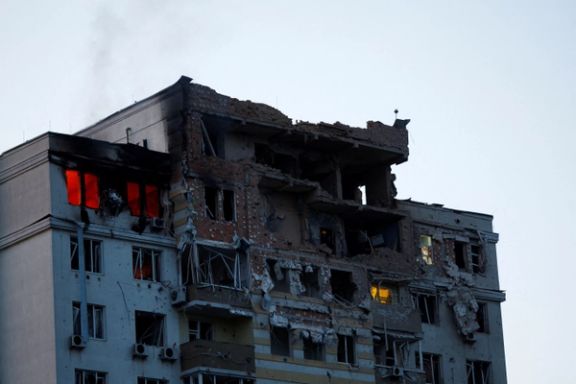
Russia launched its 17th mass air attack this month targeting Ukraine’s capital Kyiv, the third in as many days, this time using only Iranian-supplied drones.

Russia launched its 17th mass air attack this month targeting Ukraine’s capital Kyiv, the third in as many days, this time using only Iranian-supplied drones.
Kyiv City Military Administration said that at around 5 am on May 30 several waves of Iranian Shahed drones were launched from different directions against the capital. No missiles were used this time.
"The attack was massive, came from different directions, in several waves," Serhiy Popko, head of Kyiv's military administration, said on the Telegram.
"A massive attack!" Kyiv Mayor Vitali Klitschko said on the Telegram messaging app. "Do not leave shelters."
Air defenses intercepted over 20 Shahed drones, but falling debris caused casualties and fires. Damage to a high-rise building in Kyiv’s Holosiivkyi District killed one person and injured three others, Kyiv Independent reported.
Russia has used hundreds of the Iranian supplied Unmanned Aerial Vehicles (UAVs) since last September to attack Ukraine’s infrastructure, civilian targets and try to overwhelm air defenses.
Russia has repeatedly attacked Kyiv in May using a combination of drones and missiles, mostly at night, in an apparent attempt to undermine Ukrainians' will to fight after more than 15 months of war.
Although the United States and its European allies have strongly condemned Iran for supplying drones and other weapons to Russia, major European countries have so far have only announced some sanctions but have not designated Iran’s Revolutionary Guard as a terrorist entity.
The air attacks come as Ukraine prepares a counter-offensive backed with Western weapons to try to drive Russian occupiers out of territory seized since Moscow launched its unprovoked invasion in February 2022.
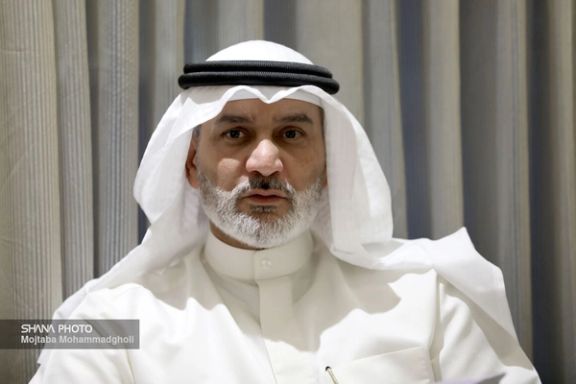
OPEC will welcome Iran’s full return to the oil market when sanctions are lifted, the secretary general of the Organization of the Petroleum Exporting Countries (OPEC) said Monday.
Iran is an OPEC member, although its oil exports are subject to US sanctions aimed at curbing Tehran's nuclear programme.
Secretary General Haitham Al Ghais, who is visiting Tehran for the first time, also told Iranian oil ministry's website SHANA that Iran has the capacity to bring on significant production volumes within a short period of time.
"We believe that Iran is a responsible player amongst its family members, the countries in the OPEC group. I’m sure there will be good work together, in synchronization, to ensure that the market will remain balanced as OPEC has continued to do over the past many years," SHANA's English-language website cited him as saying.
Although US sanctions can penalize any third party engaged in Iranian oil exports, Tehran ships daily close to one million barrels of crude to China, often disguised as cargos from third countries. Before the US imposed its sanctions in 2018 and 2019, Iran was exporting around 2.2 million barrels per day and in if sanctions are lifted Iran’s export capacity can hardly surpass that without major investments in the sector.
Saudi Arabia, the kingpin of OPEC, and Iran announced in March that they would restore diplomatic relations after years of hostility, in a deal brokered by China, the world's No. 2 oil consumer.
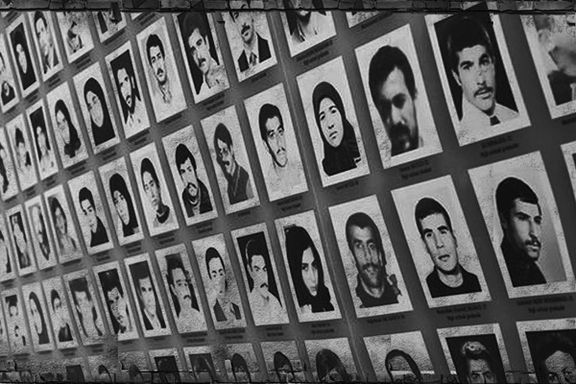
The former director of the notorious Evin prison in Tehran has accused President Ebrahim Raisi of having a direct role in executing political prisoners under the founder of Islamic Republic, Ruhollah Khomeini.
Hossein Mortazavi Zanjani said in a virtual meeting on Clubhouse that Raisi, who was the deputy prosecutor of Tehran, told him: "We went and got an order from Ayatollah Khomeini to execute the prisoners."
This is the first revelation by a former judiciary official about the direct involvement of the Iranian president in the killing of political prisoners in the 1980s.
The executions during the 1980s were carried out based on a fatwa by Iran's then supreme leader, Ruhollah Khomeini, against the MEK (The People's Mojahedin Organization of Iran) which carried out a wave of bombings in Iran and struck an alliance with Saddam Hussein during the 1980-88 war.
“Showing mercy to those who take up arms against the Islamic government is being naïve,” Khomeini said in his fatwa.
Most victims were linked to the MEK but there were also others with links to leftist and secular groups such as Fadaiyan Khalq Organization (FKO) and the Tudeh Party as well as some Kurdish groups such as Komala and the Kurdish Democratic Party of Iran.
The exact number of prisoners executed during the purge of prisoners is not known but according to Amnesty International, the Iranian authorities "forcibly disappeared" and "extrajudicially executed" around 5,000 between July and September 1988.
The former director of Evin prison, which has held some of the country’s most high profile cases and is famed for its brutalities to inmates, added that he witnessed the bodies of the executed prisoners thrown into trucks and taken from the prison.
Mortazavi claimed he resigned to what was known as ‘the death board’, the group of decision-makers deciding whether prisoners lived or died. He claims his resignation was met with a death threat by the deputy intelligence minister.
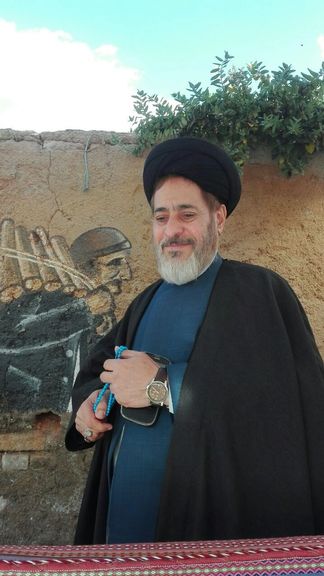
“Although I did not have a direct role in the execution of prisoners, I feel guilty because of my silence about the executions, and even if I repent, I will not be cleansed,” he said.
After his victory in the presidential election in 2021, in response to an Al-Jazeera reporter’s question, Ebrahim Raisi said he has been a "human rights defender" since the beginning of his tenure in the judicial system and "should be commended " for his actions.
Mortazavi further stated that female prisoners still virgins were forcibly married to jailers before the execution. According to the narrative of political prisoners, the clerics of the Islamic Republic believed if the virgin girls were executed, they would go to heaven, and for this reason, they raped them in the form of forced marriage so that they would not die virgins.
”The father of one of the executed virgin girls told me that after the execution of his daughter, the agents gave him money saying the money is for his daughter's marriage endowment."

Only two days after Muscat mediated a prisoner swap between Iran and Belgium, Sultan Haitham bin Tariq al-Said traveled to Tehran, meeting with President Ebrahim Raisi and Supreme Leader Ali Khamenei.
Traditionally, Oman works as a mediator between Iran and Western countries, and it also plays a role in facilitating relations between Tehran and Arab countries. It was one of the key players in the talks which eventually led to Iran and Saudi’s détente.
Given that this time the Sultan himself has come to Iran, there is no doubt this is a vital visit. Almost all of the reports by Iranian state media on the first day of the visit were focused on bolstering economic cooperation between the two countries, with some discussion on recent developments in the region. However, no details about trade or regional diplomacy were released.
The joint statement released after Oman’s sultan meeting with the Iranian president abounds with clichés such as “strengthening friendly and brotherly relations on the basis of common interests, especially in the fields of trade, energy, investment and culture.”
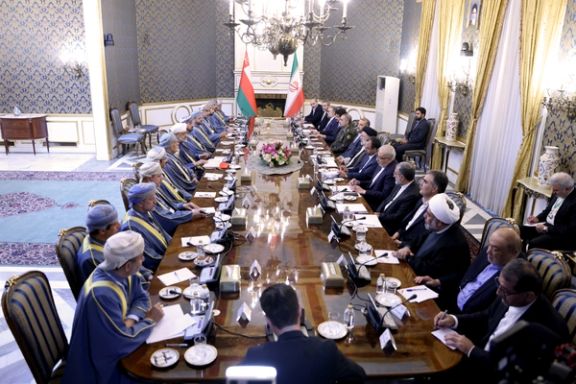
On the second day of the trip, Sultan bin Tarik met with the Supreme Leader, apparently delving deeper into Iran’s détente with its classic rivals Saudi Arabia and Egypt. The only takeaway from the readout of the meeting by Khamenei’s office, was the Supreme Leader’s welcoming of better relations with Egypt.
Khamenei's comments came as Middle Eastern countries including Egypt are taking steps to ease regional tensions and relations between Egypt and Iran have often been fraught in recent decades although the two countries have maintained diplomatic contacts. In March, regional rivals Sunni Saudi Arabia and Shiite Muslim Iran ended years of hostility and agreed to restore diplomatic relations under a China-mediated deal.
The presence of Iran’s top nuclear negotiator Ali Bagheri-Kani during Oman’s sultan meeting with Khamenei, which is somewhat unusual, indicates that there must have been a nuclear aspect to the meeting, despite a possible media ban on this aspect of the talks.
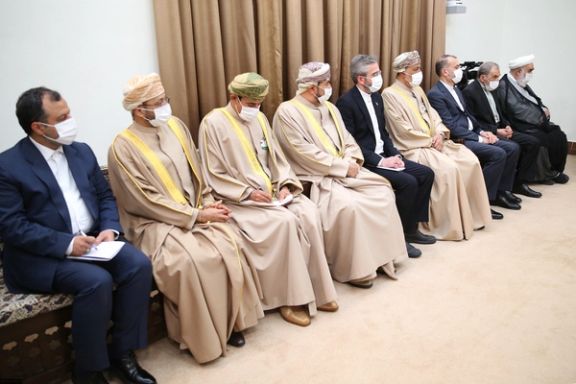
The seeming lack of openness about the nuclear side of the talks has drawn suspicion from global Iran watchers who are looking to Oman to mediate in the possible revival of talks on the 2015 nuclear deal, which has fallen apart. There are also rumors that the US and the Islamic Republic are about to reach a deal in the near future, which could be among the secret topics discussed during the visit by Oman’s sultan.
Former diplomat Fereydoun Majlesi told Fararu on Monday that Oman has a respected position in the Persian Gulf. "Oman speaks on behalf of all the countries of the Persian Gulf and what is in the interest of Oman is in the interest of all Arab countries in the region,” he said, noting that minimizing the risks of tensions or wars and unease between the Islamic Republic and the US and Israel plays an important role in that.
“These countries are worried that any kind of conflict between Iran and its long-time enemies would overshadow all the peace and security they have achieved during the last half century," added Majlesi who said that Iran’s foreign minister has recently assessed the revival of the JCPOA as “important and vital and expressed willingness to restore the deal”.
Ali Bigdeli, another pundit, told Fararu that the most important possible reason for Sultan of Oman's visit to Iran is mediating for exchange of dual-national prisoners.
A source told Iran International last week that talks between Iran and the US on the release of Tehran's frozen assets could result in a deal soon.
Apparently, the talks that have made progress focused on Iranian funds held in Iraq and South Korea. Iran is apparently expected to show more flexibility on issues related to its nuclear program in exchange for the release of its funds in Iraq, and free hostages with dual nationality in exchange for its assets in South Korea.
Currently there are three dual nationals with American citizenship and two individuals with US permanent residency held by Iran on trumped-up charges of espionage.
Also on Monday, Israel’s state television channel Kan 11 reported that a deal between Tehran and Washington will be finalized in the coming weeks.
During an interview with Reshet Bet on Monday, Israeli opposition leader Yair Lapid expressed alarm about reports of the imminent nuclear agreement, saying: "Such an interim agreement is dangerous. Every effort must be made to prevent this from happening.”
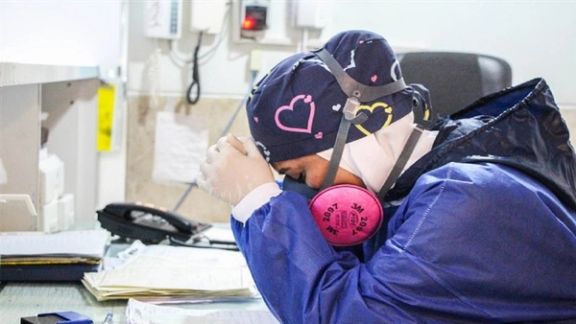
Around 10,000 healthcare practitioners have left Iran over the past two years to work in the Arab world.
With economic and financial conditions at rock bottom, MP Hossein Ali Shahriari, chairman of the Iranian parliament's Health and Treatment Committee, said most have gone to the Persian Gulf countries including Oman and the United Arab Emirates.
"Unfortunately, we are facing a human resources shortage in private and even state medical centers, but the government apparently has no plan to deal with it," he said.
The number of Iran's healthcare professionals leaving the country is on the rise, worsened by the country's lack of freedoms and the months of violent uprisings since September. Doctors earn an average of $450 in a sector which is now facing shortages of basic goods such as IV fluids and cold pills in addition to medicine, due to global sanctions.
Thousands of physicians, dentists, midwives, and nurses have either emigrated in the past few years or are planning to leave for other countries.
There is no transparent data on the emigration of healthcare and other professionals, but medical officials and lawmakers often offer fragmentary information on the scope of the problem.
In February, Mohammad Sharifi-Moghadam, a member of the central council of Iran's Nurses’ Organization, said between 2,500 to 3,000 nurses were emigrating from Iran each year.
A survey by Iran Migration Observatory in 2022 found that economic and social instability, institutionalized corruption, and the regime’s governance methods were responsible for the very high desire to emigrate among medical students, professors and other healthcare professionals. The sector employs around 100,000 people in total but emigration of such large numbers could pose major challenges to the system, especially in the more rural regions where healthcare is less accessible.
The report warned that those who failed to emigrate were in danger of losing their motivation for work.
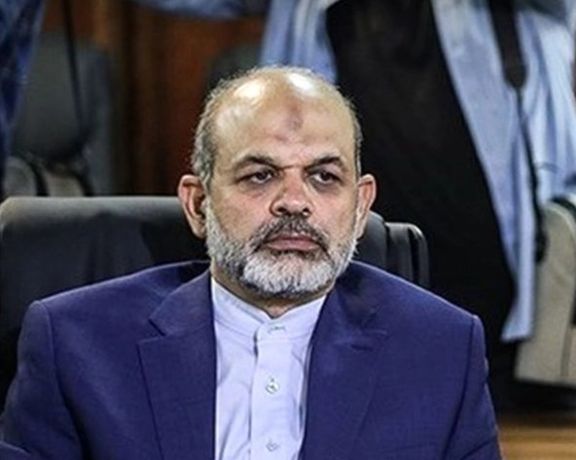
Two days after the deadly clash on the Iran-Afghanistan border, Iran's Interior Minister described the incident as a "brief conflict".
Ahmad Vahidi said Monday that "the issue was resolved after negotiations were held with the Taliban," playing down the severity of the clash.
"There was a cross-border shooting by the Afghan border guards, and naturally, they were given an appropriate response."
"Currently, there is no problem, and the border is open and in peace," added Vahidi.
Clashes at the border on Saturday over water rights claimed the lives of at least two Iranians and one Taliban soldier. According to a report by Iranian reformist daily newspaper Ham-Mihan, about 50 Iranians have been killed in border regions since 2020.
Despite Tehran’s claims that the clashes are over, and the situation is in control, Taliban sources have released videos of capturing an outpost inside Iran.
Earlier, Abolfazl Zohrevand, the former ambassador of Iran in Kabul, described the conflict as "a serious war" in an interview with Entekhab website saying that the conflict could be resumed.
On Sunday, Qasem Rezaei, deputy commander of Iran's Law Enforcement Forces and Kiumars Heydari, the Commander of the Iranian Army's Ground Forces, traveled to Sistan-Baluchestan province bordering Afghanistan to probe the situation.
Disputes between Tehran and Kabul have risen over the Taliban’s obstruction of Iran's access to Helmand River water in violation of a 1973 treaty.
Iran has accused Afghanistan's Taliban of violating a 1973 treaty by restricting the flow of water from the Helmand River to Iran's parched eastern regions, an accusation denied by the Taliban.